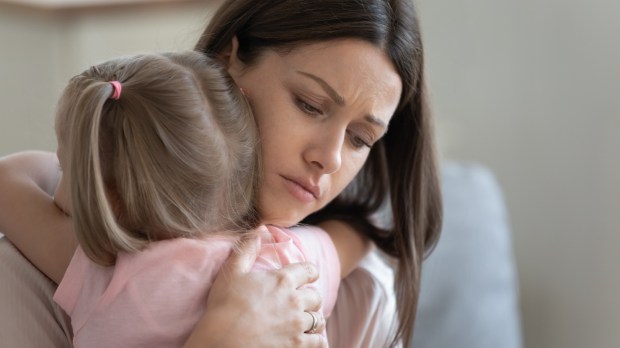Announcing the death of a loved one to children can be very distressing for parents, especially when they’re having to struggle with their own grief. This can also be made even harder when the children are at an age where it’s difficult for them to comprehend what death is.
Yet, it’s important to address the situation with youngsters in a way that will leave them with as little trauma as possible, allow the family to heal, and furthermore, to be able to honor the deceased.
Therefore, if you’re having to speak to your toddler or young child about the death of a loved one, here are some key points that should help you along the way:
Simplicity is key
Be very clear and direct in how you tell your child. They need to hear a simple sentence that makes sense to them. You could therefore say something such as: “I have some sad news. Grandpa died yesterday.”
After you have given the news, give your child some time to absorb what you have said.
Give a reassuring explanation
Hearing a loved has died can be a great source of anxiety for kids. If their loved one is suddenly no longer with them, they might think that they, too, could suddenly die. It’s therefore very important to give a simple explanation, such as: “Grandpa’s heart was sick and it stopped working.” And then follow it up by ensuring them that this will not happen to them.
Take time to listen
It’s important to remember that children respond to death very differently. While toddlers might not have much to say, a slightly older child might cry, others might run off to play and not take the news on board for a while, and there’s also the chance you may get bombarded with questions. Try to answer them truthfully, clearly, but at the same time reassure them with lots of hugs.
The most important thing is to listen to your child and offer them some comfort and love. It’s also perfectly normal for you to show your own emotions, therefore don’t worry if they see you upset.
Encourage feelings
It’s always helpful to be able to express our emotions, especially for children. You can help your child by saying something along the lines of: “I understand if you’re feeling sad. I feel very sad, we loved grandpa very much, and he loved us.”
However, be prepared that some children might not respond how you’d expect. Be open to listening to them at all stages of the grieving process and beyond.
Explain practical changes
A death in the family can have significant consequences on daily routine, so be sure to explain to your child any potential changes in advance. For example, if you’re needing to stay and look after a relative, make sure your child is aware of the changes so they are fully prepared and not left feeling anxious.
Explain upcoming arrangements
Funerals are not only emotionally charged, but they also involve some unusual rituals that might be a source of confusion or distress for a youngster. It’s therefore really useful to explain briefly and clearly what will happen during this time. It’s important they they know people may cry, prayers will be said, and that people may talk about their grandpa a lot.
Offer your child a role
Children love to feel a part of things, and so if you give them a role during the funeral service this can help them cope. For younger children it could be as simple as just holding a flower, but this gesture will keep them busy and focused.
Lean on your faith
One of the many beauties of the Catholic faith is the belief in the eternal life. You can therefore explain to your child that grandpa is in a very happy place up in heaven with God and that they can say a little prayer to him every day and he’ll be listening. Understandably this can be very reassuring for a youngster, and even adults, too!



